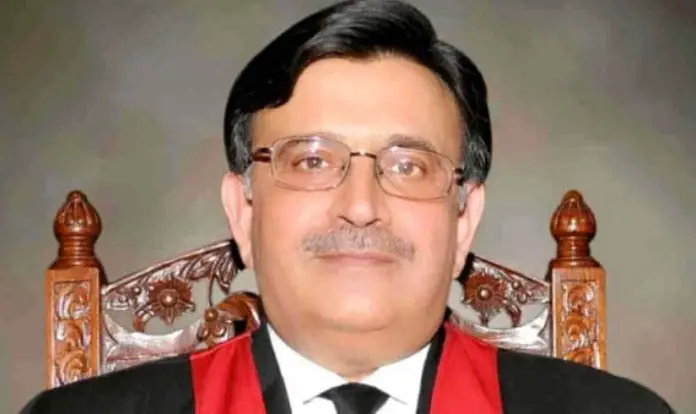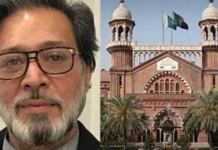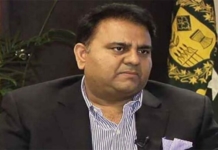Chief Justice of Pakistan (CJP) Umar Ata Bandial on Wednesday asked the counsel for the Pakistan Tehreek-e-Insaf (PTI)-led government, Babar Awan, about the minutes of the recent meeting of the National Security Committee (NSC), which had discussed a letter purportedly showing evidence of a foreign conspiracy to topple the government.
The CJP made the inquiry as a five-member bench, comprising Justice Ijazul Ahsan, Justice Mohammad Ali Mazhar, Justice Munib Akhtar and Justice Jamal Khan Mandokhail, took up a suo motu case on the events of April 3 when National Assembly (NA) Deputy Speaker Qasim Shah Suri dismissed the no-confidence motion against the prime minister and President Dr Alvi dissolved the NA on the premier’s advice.
During the hearing, Justice Bandial questioned the basis on which the speaker issued the ruling. He observed that, so far, the ruling consisted of accusations, not findings. “Can the speaker announce such a ruling without presenting the facts,” he asked, adding that this was the constitutional point on which the court had to make a decision.
He also asked Awan to inform the court whether the speaker could issue a ruling that was not on the day’s agenda by bypassing Article 95. He told the PTI counsel to defend the ruling with “solid” evidence. Also, the CJP rejected a request made by Awan for an in-camera briefing on the “lettergate”, observing that the court was not asking for the letter.
After Awan, Barrister Ali Zafar, counsel for President Arif Alvi, started his arguments, insisting that any direction from the court on the matter of the deputy speaker’s ruling would exceed its jurisdiction. He said the court could only review the speaker’s ruling on the no-confidence motion if it decided to not consider it as a parliamentary proceeding.
Justice Mandokhail asked what would happen if the speaker announced that the no-confidence motion had succeeded irrespective of the fact that the votes were not enough. Barrister Ali Zafar said that parliament should be given a chance to solve its issues itself.
He added that any direction from the court on the matter of the deputy speaker’s ruling would exceed its jurisdiction. The case under discussion pertained to the interpretation of Articles 95 and 69. There were six rules for interpreting the provisions of the constitution and should be understood in accordance with their true spirit rather than just words, he maintained.
He said, unfortunately, the petitioners wanted the case to be heard as an appeal against the ruling of the deputy speaker. The case was in fact interference with the prerogatives of the National Assembly.
Barrister Zafar said that even if 10 MNAs were not allowed to vote and were expelled from the house, such a move could not be challenged by anyone.
The chief justice asked if interference was not possible even if the constitution was violated. Ali Zafar said he would submit his arguments on what was constitutional and what was not.
If the house was not satisfied with the speaker, it could opt for a no-confidence motion, but if the speaker’s ruling was reviewed, every decision taken by him would be brought to court.
“The court should leave the matter to the people instead of interfering,” he said, to which Justice Ahsan asked what would happen if the parliament could not solve its problems itself.
The president’s counsel quoted the 2012 example of the apex court ordering the then prime minister Yousuf Raza Gilani to write a letter to Swiss authorities in the National Reconciliation Ordinance (NRO) case, recalling that when the court’s orders were not followed, a reference was sent to the speaker that was rejected.
“The court ruled that the speaker’s job was to act on the decision,” he said, adding that only those rulings of the speaker can be challenged that are not part of parliamentary proceedings. The chief justice said the court wanted to hear Attorney General for Pakistan (AGP) Khalid Jawed Khan’s arguments and would also like to listen to Naeem Bukhari – the counsel for NA Speaker Asad Qaiser.
The AGP said most of his arguments were on legal points so he would present them today (Thursday). Bukhari, too, told the court that he would present his arguments today. The court subsequently adjourned the hearing till 9:30 am today (Thursday).







